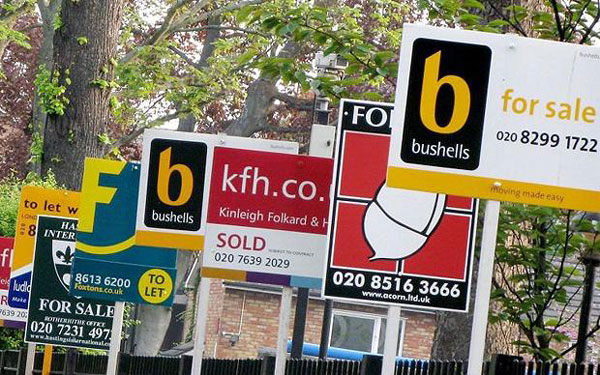First-time Buyer
Average asking prices rise in March but buyers and sellers ‘shouldn’t get carried away’

The average asking price of a property coming to market ticked up by 0.8% to £365,357 in March.
Data from the Rightmove House Price Index showed that the £2,906 month-on-month growth was mainly fueled by price increases to the largest homes in the market. In March, the average asking price for top-of-the-ladder properties rose by 1.2% to £658,702.
This compared to milder rises of 0.5% for first-time buyer homes which came to £224,453, and second-stepper homes where a 0.4% increase in the average asking price brought values to £337,119.
New asking prices are £5,800 down on the peak seen in October last year and annual growth sat at 3%.
The monthly increase seen in March was also down on the typical 1% growth recorded during the month over the last 20 years.
Optimistic large home sellers
Rightmove said the muted growth in the average asking price for second-stepper homes reflected the drop in agreed sales, which was 13% lower than 2019. Agreed sales for larger homes were down 10% on the same pre-pandemic period.
The property portal said sellers of larger homes were being “over-optimistic” and may need to “temper their price expectations” to attract buyers.
Sales agreed in the first-time buyer sector, which is homes with up to two bedrooms, improved the fastest and were just 4% down on 2019. However, this was an 18% drop on the same period last year and the average asking price of first-time buyer homes is just £500 lower than 2022.
Rightmove said in light of increased mortgage costs, it was likely that buyers in this segment were getting support from family or had saved up for a deposit while living at home.
The average fixed rate for an 85% loan to value (LTV) mortgage is now 4.65%, down from February’s 4.75% and October’s peak of 5.89%. However, this is significantly higher than the average of 2.48% in March 2022.
The average level of housing stock per agent in February came to 43, a slight rise on January’s 42. The typical time to secure a buyer fell from 74 days in January to 70 in February.
A calmer market
Tim Bannister, director of property science at Rightmove, said: “The pace of the market reached an unsustainable level in the last two years, and was on track to slow to a more normal level, though the speed of this slowdown to more normality was accelerated by the reaction to September’s mini Budget.
“While higher mortgage rates and economic headwinds raise challenges, many potential home movers who were effectively sidelined in the frenetic bidding wars of the last two years will find that a slower-paced market gives them time to plan and secure their next move as we enter the traditionally busy spring-buying season.”
He added: “Lagging sales agreed in the larger homes sectors are likely to be caused by a combination of factors including fewer pandemic-driven moves to bigger homes, a more cautious approach to trading up due to the cost of living, and even perhaps concern over the running costs of a larger home.”
Sarah Coles, head of personal finance at Hargreaves Lansdown, said: “Sellers are taking a punt on higher asking prices. They’re hoping falling mortgage rates and the spring selling season will support some fairly optimistic pricing – particularly at the pricier end of the market. Unfortunately, there are a few signs that some of this confidence may be misplaced, and that they may well need to do a deal to secure a sale.”
Coles said lower rates could bring more people back to the property market, which could cushion house price falls.
She added: “However, demand remains fragile, and given the uncertainty over the trajectory of the mortgage market, this is not a time to get carried away.”